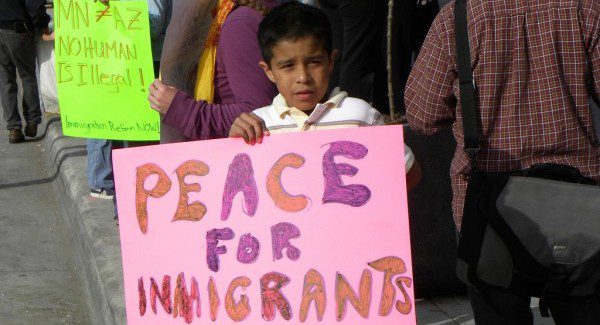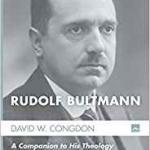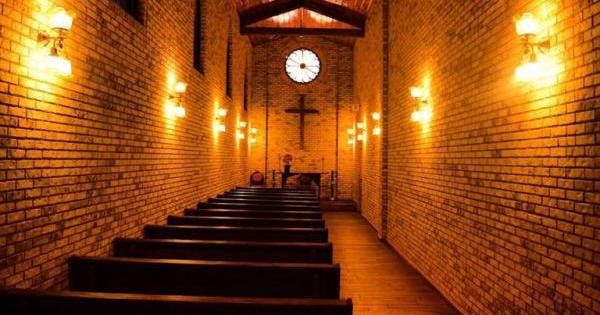Donald Trump’s ban on Muslim immigrants from 7 predominantly Muslim countries (none of which he has business interests in) continues to generate vocal and widespread opposition.

Thankfully, high courts have recently intervened, reminding us all that the US can be in fact a country of “law and order,” though of a different sort than Trump desires.
But Trump and his administration will continue to vigorously fight the courts’ intervention, against the angels of our better, wiser, and more hospitable natures, and against the recent legal renderings that have frustrated his attempts to let fear drive policy.
So, those of us who desire that the United States remains a country that is hospitable toward outsiders, particularly those who have been driven to desperate situations, fleeing war, terrorism, and hate, have to remain vigilant.
The Academic Council of the seminary where I teach, United Theological Seminary of the Twin Cities, recently wrote a joint statement voicing vigorous disagreement with the Muslim ban, and calling more broadly for a more humane, more just, and more merciful approach to policy and governmental leadership. I’m proud to work for United and alongside this faculty:
Here is that statement:
_________
President Trump’s recent ban on Muslim immigrants, and the attempt to blanket this inhospitable and destructive policy with the cover of Christianity or in the name of a particular version of Christianity, is detestable and hypocritical.
As an historic Christian, ecumenical, and increasingly inter-religious seminary known for our deep-rooted concerns for justice, inclusion, and a commitment to the value of diversity, we are compelled to speak publicly, joining our voices with many others across the nation and the world.
In the stories of our Scriptures and in the best theologies of our traditions, we do not find legitimation for intolerance and bigotry, nor for actions and policies based on fear.
Rather, we find a beating heart of welcome for the stranger, justice for the oppressed, inclusion of the marginalized, and healing for the broken.
The people of Israel were called by God to be a light for the world and a vehicle of justice for the nations. God blessed Israel when it opened its arms to the world, not when it turned in upon itself and deprived the migrant of justice and mercy (Deut. 27:19).
Again and again, the Hebrew prophets beckoned the people of God to open their gates to the vulnerable, hurting, and broken.
Jesus, the Messiah, lived in solidarity with the oppressed, with the poor, the “little ones.” He began life as a migrant, having escaped the wrath of king Herod to live with his family in Egypt for a time (Matt. 1:13-18). At the end of his life, he told his disciples that whatever we do to the “least of these,” we also do to him (Matt. 25:31-46). Jesus warned that judgment is based on our actions or inactions with regard to the most vulnerable among us.
And in the Beatitudes (Matt. 5), Jesus promised that those who stand up for justice are blessed, even when they are persecuted for it.
In this volatile age, may it be known that we stand on the side of the vulnerable and the outsider. We proclaim that we will be a community of welcome and hospitality and we join our arms with all those of like mind and heart, whether Christian, Jew, Muslim, any other faith, or none at all.
We acknowledge that none of us are immune to fear. Whether in the form of terrorism, crime, poverty, or simply the frailty of finitude, we are constantly tempted give into our fears. But history has repeatedly taught us that isolationism, demonization of others, mass incarceration, and violence do not ever make things better. They only add to the cycle of fear and death.
We call upon President Trump, his Administration and the Congress to care for the lives of all Americans by promoting tolerance and combating racism, xenophobia, sexism, heterosexism, and classism. We reject any attempts to manipulate our fears to turn our citizens against each other, destroying the bonds that should hold us together.
United Theological Seminary of the Twin Cities is committed to preparing leaders to work with people of all walks of life and of every political perspective to courageously face their legitimate fears, while maintaining a stance of openness, inclusiveness, and hospitality toward others.
Together we commit to advocating for and living into the way modeled by the prophets, priests, and exemplars of our better nature: the way of faith, hope, love, and peace.
Signed:
Lewis P. Zeidner, Ph.D., Seminary President
Sharon M. Tan, J.D., Ph.D., Dean of the Seminary
Kyle Roberts, Ph.D., Schilling Professor of Public Theology and Church and Economic Life
Rev. Dr. Paul Captez, M.Div., Ph.D., Professor of Historical Theology
Rev. Dr. Carolyn Pressler, M.Div., Ph.D., Harry C. Piper Jr. Professor of Biblical Interpretation
Rev. Dr. Eleazar Fernandez, M.Div., Ph.D., Professor of Constructive Theology
Rev. Dr. J. Samuel Subramanian, Ph.D., M.Div., Assistant Professor of New Testament Theology
Demian Wheeler, Ph.D., Louisville Institute Postdoctoral Fellow
Rufus Burrow, Ph.D., Distinguished Visiting Professor of Theological Social Ethics and Black Church Leadership
Rev. Dr. Cindi Beth Johnson, D.Min., Professor in the Practice of Theology and the Arts
Rev. John Lee, M.Div., Seminary Chaplain
Rev. Greg Meland, M.A., Director of Spiritual and Vocational Development
Dale Dobias, M.A., Director of the Library and Associate Professor of Theological Research
Brian Braskich, M.A., Director of Assessment and Financial Aid
Rev. Steve Newcom, M.A., Director of Social Transformation
Rev. Sara Wilhelm Garbers, M.Div., Director of Formation & Contextual Education
Margaree Levy, M.A., Assistant Dean of Students
* * *











